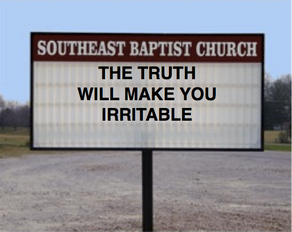| You are Jacob. You have just spent the last twenty years in exile from the land of your birth. In all that time, you have not seen your parents. You also have not seen your brother, Esau, as you live in mortal terror that he will kill you the next time he sees you. Esau wants to kill you because of the terrible tricks you played on him, because of the lies you told at his expense, because of all that you stole from him. Deep down, you probably think that, if he did kill you, you would deserve it. |
How do you feel when the messenger you sent ahead to greet your brother comes back to tell you that he is now heading in your direction with four hundred men? Scared?
You divide your family—consisting of two wives, two concubines, and twelve children—into two camps. You hope that one of those camps might escape while the other is plundered by Esau and his men. You look to God and you say:
God of my father Abraham, God of my father Isaac, Adonai, who said to me, "Return to the land of your birth and I will be good to you," I have been made small by all of the love and faith that you have shown me, for I once crossed this same Jordan River with nothing but my staff, and now I have become two camps! Please save me from the hand of my brother Esau, for I am frightened of him, frightened that he will come strike me down along with the mothers and children. (Genesis 32:10-12)
It's not hard to see that Jacob's statements about being small and being large have double meanings. Was Jacob really made small by God's love? Not on a literal level. In fact, the very opposite is true. God's love for Jacob made him a huge success, a man who possessed great flocks and wealth. There are at least two possible ways, though, that Jacob may have felt small as he crossed the Jordan for the second time.
Jacob felt humbled by God's generosity in showing "love and faith" to him. This is the feeling we have when we realize just how lucky we are. We feel small with humility when we recognize the miracles that rule over our existence and just how insignificant all of our accomplishments are when compared to the incredible good fortune of just being alive. Jacob had good reason to feel that kind of smallness.
On the other hand, Jacob also felt small because of his fear of Esau. This is the smallness of recognizing, in terror, just how fragile we are and how easily our mortal lives can be snatched from us. With the approach of Esau and his four hundred men, Jacob had every reason to feel that small, too.
Isn't it interesting how these two types of "small"—born from humility and from fear—exist together in this dramatic moment? Maybe they are really the same thing. Maybe the humble feeling of smallness is also a recognition of our mortality. Maybe our fear of death is also a recognition of how valuable life is.
Notice that Jacob makes a bit of a joke on himself in this passage. He boasts about how much property he has amassed in the last twenty years—so much that it fills two camps. But Jacob knows that his possessions have been divided in two merely as a hedge against losing them all. The boast can be read as a sarcastic comment by Jacob as he ponders the foul turn of events that threaten his life and all his accomplished. "Look at me," he seems to say as he divides his family in half," I have so much stuff that it fills two camps. How lucky can you get?"
In this moment, Jacob realizes that all of his might and greatness are really nothing. They are just a mask he wears to cover his fear. Did you ever feel that way?
Here is the question this story is burning to ask: When were you small?
In that moment when you felt most praised for your accomplishments, did you have the humble sensation of knowing that you were really small? In a time when good fortune shone most brightly on your face, were you able to say to yourself, in all humility, "I have been made small"? On a day of dreadful fear, when you could only pray for the strength to make it to tomorrow, did you allow yourself to remember the love and faith others have shown you, and in that memory, feel truly small?
We are small. Human life is short, and the accomplishments on which we stake our egos are forgotten sooner than we dare imagine. Yet, even a brief and small life is an incredible gift that we have been given without deserving. There is a terror in recognizing how lucky we really are.
Other Posts on This Topic:
Re'eh: The Message and the Messenger
The Blind and the Light







 RSS Feed
RSS Feed
